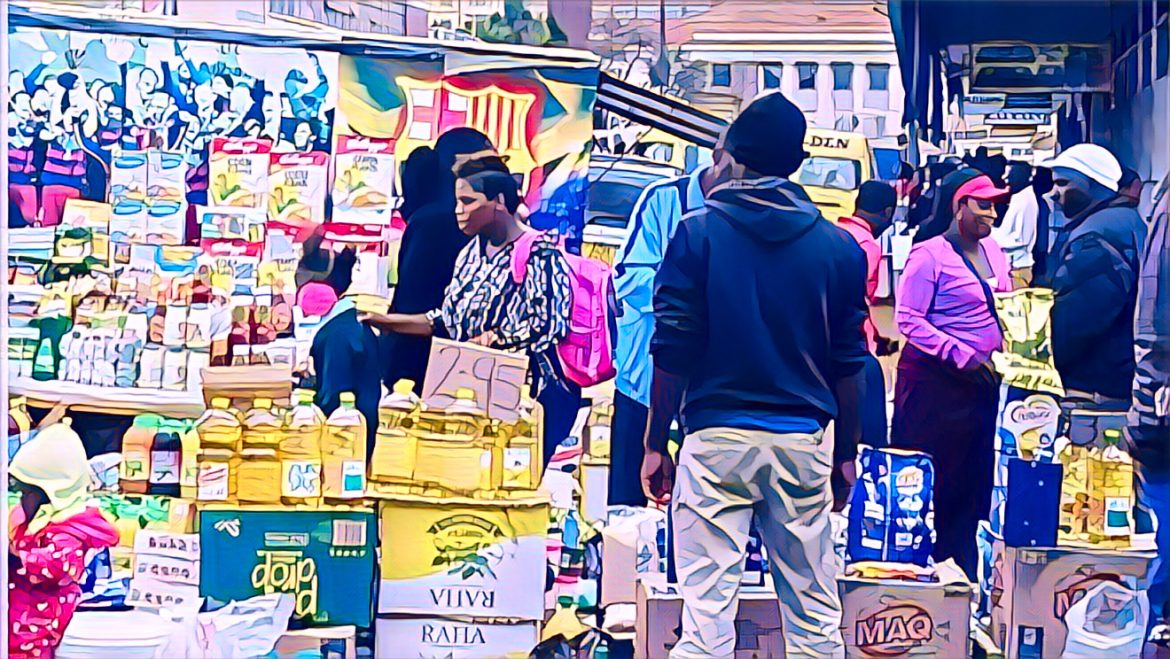KEY POINTS
- Consumers prefer informal tuck shops over formal retailers.
- Zimbabwe’s currency policies make it harder for retailers to compete.
- The government is enforcing tax and licensing regulations in the informal sector.
Formal retailers in Zimbabwe are facing a steep decline in customer traffic, as more consumers turn to informal tuck shops for lower prices and convenience.
Many established chain stores in Harare have closed or scaled down operations, struggling to compete with unregulated sellers who bypass taxes, licensing fees, and labor laws.
Tuck shops, found mostly in downtown Harare, are thriving because they sell groceries at lower prices than large retailers. The Confederation of Zimbabwe Retailers (CZR) confirms that major chain stores are struggling, citing exchange rate distortions and informal sector dominance as key challenges.
Denford Mutashu, president of the CZR, explained that formal retailers operate under strict regulations that drive up their costs, making it difficult to match informal traders’ pricing.
Currency distortions worsen retail sector crisis
A major challenge for formal businesses is Zimbabwe’s dual currency system, where the ZiG currency trades at an official exchange rate of 26 per U.S. dollar, but closer to 38 on the black market.
The difference in currency rates enables informal traders to prosper in U.S. dollar deals, while formal businesses must operate with the ZiG currency.
“Formal businesses are compelled to accept the ZiG in a dollarized supply chain,” Mutashu explained, adding that operational costs such as fuel for generators must be paid in U.S. dollars.
The pricing gap creates substantial pressure on retailers since some operators feel compelled to reduce their stocks or close their business.
ZiG faced challenges despite being launched by the Reserve Bank of Zimbabwe during April 2024 to control inflation. The currency devaluation between December and January pushed inflation rates from 3.7 percent to 10.5 percent, which led many informal traders to reject the currency entirely.
Government steps in with new regulations
Due to struggling formal retailers and tax base decline, the government plans to introduce regulations for informal businesses.
According to New Zimbabwe, Finance Minister Mthuli Ncube announced new rules requiring all businesses to use point-of-sale machines and maintain bank accounts linked to the national tax agency.
The government enforces restrictions on manufacturers who deliver products directly to unlicensed traders to redirect retail distributions through lawful business channels. A multi-agency enforcement team will control compliance through local government bodies which must confirm that businesses meet licensing and tax requirements.
Despite these efforts, formal businesses argue that the policy shifts need to go further. The combination of unfair exchange rates and non-enforced tax laws in the informal sector potentially threatens the survival of many formal retailers who may end up closing down permanently.


